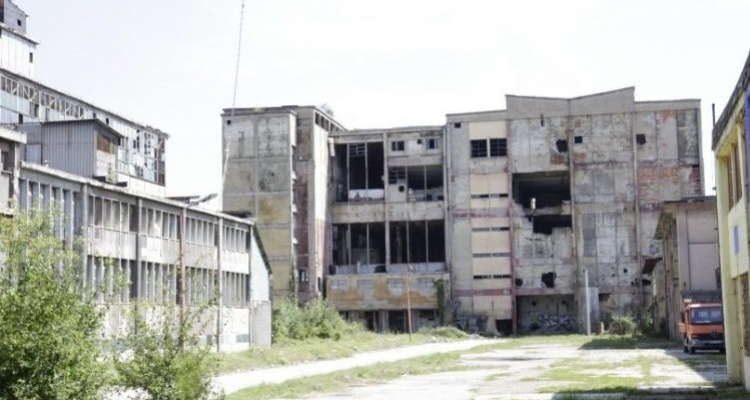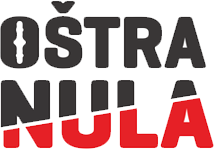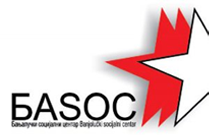the sequel of the story of the downfall of companies in Banjaluka and the process of privatization followed by major wrongdoings
Who has thrived the most?
Two hundred employees worked in Mljekara before the privatization, and only 30 were left after it. Mljekara collapsed shortly after the privatization, and nobody works there today.
It was privatized at the end of 2004, and the state capital of 66% was sold to Mlekara of Subotica for 500, 000 BAM, with obligatory 13 million BAM for investments, an increase in production, retaining workers and keeping the business predominantly active.
The Government of the Republic of Srpska was obliged to convert the debt of Mljekara into shares, which was done during the course of 2007. After the privatization, the major shareholder cut down significantly milk repurchase from domestic subcontractors and started importing milk from Belgrade’s Imlek.
Imlek and Subotica’s Mljekara share the same owner – Danube Foods Group. That particular policy of Mljekara caused many losses for the subcontractors who had supplied Mljekara with raw milk until then. Instead of investing, at the end of 2006, the major shareholder bought Mlijekoprodukt in Kozarska Dubica, a dairy with the largest market share in BiH.
Subsequently, the majority owner demanded that the Government of the Republic of Srpska, i.e the Privatization Council, acknowledge the acquisition of the Mlijekoprodukt in Kozarska Dubica, and to move Mljekara to Lijevče polje. They denied the first requrement and accepted the other. The business results of Banjaluka’s Mljekara in the post-privatization period were disastrous.
Between 2004 and 2010, 12 million BAM of loss was accumulated, which together with the previous eight million amounted to 20 million BAM at the end of 2010. At the end of 2014, the accumulated loss totaled 24,112,831 BAM. The revenue of Mljekara in 2004 was 5,5 million, while in 2010, only 500,000 BAM.
In September of 2010, Mljekara established a new plant and a distribution center in Aleksandrovac. They announced the production of 50 tons of milk daily and 40 job vacancies. Half a year later, all of the workers got fired, and the production stopped altogether.
A regulatory plan for a part of Rosulje, more specifically Malta, which was at the site of Banjaluka’s Mljekara, provided a construction of a contemporary hotel and convention center with all the modern facilities and compatible functions. The revision was issued the same year that Mljekara closed the door to its workers.
Od štampane veze do supe i sarme
Čajevec was found in 1950, by the decision of the Federal Executive Council. Back then, experts, technicians, and engineers from all around Yugoslavia were coming to Banjaluka. Uncompanied personnel housings were built for the occasion.
Čajevec ran 35 companies. In the early 90s, more than 10,000 workers worked for this industry giant, and the company had its plants in Foča, Čelinac, Šipovo, Laktaši, Novakovići, and a smaller plant was located in Rogoznica, in Croatia. The proposed revision of the regulatory plan planned major modifications and transformations of the location.
After the privatization, the production died, and most of the company went bankrupt. In halls and buildings which used to be plants now reside shopping malls, private colleges, furniture shops, disco clubs, salons, bars, TV studios, and political parties’ headquarters.
Where there was Čajevec heating plant now is the headquarters of the Banjaluka’s Serb Democrat Party committee, while the former headquarters of Holding houses Petar Đokić’s Socialist Party. GO SNSD Banja Luka, and the United Srpska of Nenad Stevandić, as well as the Serbian Radical Party of dr. Vojislav Šešelj, are located in the same building.
The site of the former Čajevac-Printed Links has turned into a wedding salon Tamaris. The site of the University of Business Studies once housed the Čajevec Institute. Within the three-story building, there are the headquarters of Bel Television, Elta Television, a call center, and several other private companies. Professional Electronics manufacturing plant used to be located there.
Where there is Konzum shopping mall today, once used to be Felma plant. The same happened with the largest manufacturing hall within Čajevec, where the Beko store was opened. The former Čajevec-Precision Casting company once had the most modern technology, and today there is located Euro Express Mail Service. Velpro shopping mall is located in the building, which once served as a warehouse of Čajevec.
The first lawsuit, which intended to oppose privatization of the company and demand a ban on property and capital trading, was filed in 2001 by the former workers of the company. The first hearing was not held until 2011. No lawyer wanted to represent the members of the Trade Union. With their claim, the workers demanded a compensation of 250 million BAM. The claim lays intact in the directories of the Commercial District Court of Banjaluka until this day.
The process of the privatization revision was initiated by the Privatization Audit Commission of the Republic of Srpska, but the process was treated like the majority of others which were claimed suspected of illegal privatization.
The flowers of Jova Vidović
Cvjećar was privatized in 2002, and the largest portion of shares was bought by Davor Damjanović, the son of Pantelija Damjanović. Soon after, Cvjećar sold its flower shop in Bata’s aisle in the center of Banjaluka. The flower shop was sold to Vjekoslav Čavić, who was a son-in-law to be to Pantelija Damjanović, for as little as 204,000 BAM. The contract was signed on December 30, 2004, and the director’s chair was suddenly given to Desimir Damjanović, the brother of Pantelija Damjanović. Another florist retailer, the one at the Palace Hotel, went into Damjanovićs’ hands, but this time into the ones of Mirjana Damjanović, Desimir’s wife.
At the auction, held on October 18, 2002, in Doboj, 30% of the state capital of Cvjećar was offered, at the starting price of 793,508 BAM. The participants didn’t auction for the initial price, so there had to be held another special auction. The initial price of the state capital suddenly whittled away.
The Commission set a minimum price of 193,508 and a price reduction standard of 8,000 for the amount of 583,508 BAM. Davor Damjanović offered the best price and bought 30% of Cvjećar for 215,508 BAM. The same year, the controversial businessman from Banjaluka Jovan Vidović became the major shareholder of Cvjećar.
The Shareholders Assembly of Cvjećar decided to sell the land, so Vidović bought 9 hectares of agricultural land in Vrbanja for 1,28 million BAM from his firm which went bankrupt. The land was registered in cadastre land register after which the regulatory plan was changed and the place ought to house building blocks with a school, kindergarten, and a grocery store.
A year after he took over Cvjećar, Vidović had the land in Vrbanja transferred by deed, of which the proof can be found in the Republican Administration for Surveying and Property Legal Affairs. One lot was bought on December 20, 2007, and another two on March 25, 2009, and January 16, 2009. According to the court judgment, Vidovic owes 54,000 BAM, without interest, to workers in the name of belated salaries, contributions, and meal allowances. Among workers, Cvjećar owes 127,787 BAM to Elektrokrajina, the City of Banja Luka, Tax Administration, Statute of Pension and Disability Insurance Fund of the Republic of Srpska, Health Insurance Fund of Republic of Srpska, and the landing telecom operator M:tel.
The dismissed workers of Cvjećar sued Vidović and this company and won most of the cases. They are still demanding their share of 50,000 BAM in the name of salaries and contributions they never got. They even wrote to Milorad Dodik in 2006 and 2013 but were not replied to. In March of 2016, a request for a privatization audit was also submitted but it was never made. On December 28, the City of Banja Luka filed a lawsuit against Cvjećar through the Attorney General of the Republic of Srpska.
Airplane, I will break your wings
Before the war, Kosmos Aviation Institute employed 1,600 workers. It was a military industry which manufactured for the purposes of the Air Force and Air Defence. Today, this former economic giant employs 229 workers and is engaged in the energy sector – repairs windmills and manufactures small arms parts.
Kosmos used to manufacture radar rocket and computer systems, overhaul radars, rocket systems and measuring equipment. It built mobile airports and runways and offered hands-on training for foreign personnel in Banja Luka and abroad. In Libya, it manufactured electro cabinets to train cadets.
After the Eagle scandal of which the evidence was never found and in which the High Representative in BiH Paddy Ashdown accused the President of the Republic of Srpska Dragan Čović of exporting military equipment to Iraq, the downfall of Kosmos was evident.
After the war, Kosmos lost its place on the market. Technology has not been invested in for more than a decade, the important business in Libya collapsed, and the remaining market got reduced. Kosmos is still in possession of a significant value of the property – real estate, land, and technology. The company doesn’t employ many, it is in need of new projects, concepts, and organization. Presently, it reconstructs wind turbines, overhauls engines, generators, and railroad parts, and manufactures some parts of infantry weapons.
Kosmos mostly manufactured for the African market: Iraq, Iran, Sudan, and Saudi Arabia. The affiliation with these countries broke after the war, and the first post-war directors did not make any efforts to re-establish them. In the golden age of Kosmos, every worker used to accumulate up to 100 working hours per month. It was termed ”red hour” and it was 35% more paid than the regular salary. If overtime hours covered the weekends or holidays then the payment would increase by up to 50%.
In December last year, the Government of the Republic of Srpska defined a new list of companies of strategic significance eight of which will be offered for sale, and the state capital of Kosmos might undergo the process of privatization first.
Chemical Industry graveyard
Banjaluka’s Incel used to be the giant of the chemical industry in former Yugoslavia. There were several sectors within it: Cellulose, Viscose, Electrolysis, Energetics, and Industrial plantations which exported over 100 million dollars in total. Today, the circle has been reduced and there are around 60 private companies, several state facilities, and public companies where 1,500 workers work in total.
Most of the companies which were part of Incel went bankrupt after the privatization, and their properties went into the hands of tycoons. For instance, the building of Viscose, as well as the hotel Slavija ended up in the hands of the owner of Ekvator company Đorđe Davidović. After he came into possession of the property, Davidović renovated the building and resold it to the institutions of the Republic of Srpska for 13 million BAM. Today, Inspectorate of the Republic of Srpska, Asset Management Agency, and Službeni glasnik of the Republic of Srpska newspaper are located there.
The only positive example of privatization is Incel’s former plant Celex which was bought by a Slovakian Eco Invest company. Slovakians bought 65% of the state capital, worth 7,4 million, for 500,000 BAM. Technically, this is the only firm from the former giant’s complex that still works and which employs 200 workers. The Government of the Republic of Srpska retained majority capital in the Business Zone and Industrial Plantations.
Incel also had resorts along the Croatian coast, from Poreč to Ulcinj. The largest number of lawsuits in these cases were filed by the Privatization Audit Commission at the time when its chairman was Savo Ševaljević, but it’s not known whether any of these suits ended up with a court resolution. This not only happened with the property of Incel but many other companies in the Republic of Srpska.
*Tekst je proizveden u okviru medijskog pool-a Mreže ACCOUNT (Antikorupcijska mreža organizacija civilnog društva)



